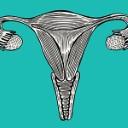Disparities
-
Why Is the Rate of Uterine Cancer Rising?
Uterine cancer incidence is increasing in the U.S., particularly in Hispanic, Asian and black women, but obesity may play a smaller role in this change than was previously assumed.
by Ashley P. Taylor
-
Cancer Care on a Native American Reservation
For the first time, people living in the Navajo Nation who are diagnosed with cancer can get treated for the disease without leaving tribal lands.
by Kate Yandell
-
Risk Reduction, Clinical Trials Are Focus of Atlanta Community Event
Cancer researchers, patient advocates and community members gathered for a public forum presented by the American Association for Cancer Research.
by Kevin McLaughlin
-
Getting a Read on Cancer
Cancer patients are increasingly receiving treatments guided by the molecular characteristics of their cancer cells. But patients may have unequal access to testing and targeted therapies.
by Kate Yandell
-
Reinforcements for Cancer Research
Scientific meeting emphasizes the importance of patient advocates in helping researchers to reduce cancer health disparities.
by Marci A. Landsmann
-
Does Medicaid Expansion Have an Impact?
Analysis suggests states that opted for Medicaid expansion had higher use of hormone therapy for breast cancer patients.
by Marci A. Landsmann
-
Achieving Health Equality
National Cancer Institute director Norman “Ned” Sharpless describes the challenge and opportunity of studying cancer disparities.
by Marci A. Landsmann
-
The Roots of Rural Health Disparities
New research shows that rural cancer patients have the same health outcomes as urban cancer patients so long as they are involved in a clinical trial.
by Cheryl Platzman Weinstock
-
A New Guideline for Cervical Cancer Screening
Physicians Lee Learman and Francisco Garcia discuss the updated U.S. Preventive Services Task Force guideline and the need to increase access to cervical cancer screening.
by Anna Azvolinsky
-
Policy Matters
Putting an End to Cancer Health DisparitiesCancer has a disproportionate impact on disadvantaged and minority groups. The AACR 2020 by 2020 initiative is a step toward closing the gap.
by Michael A. Caligiuri, MD














